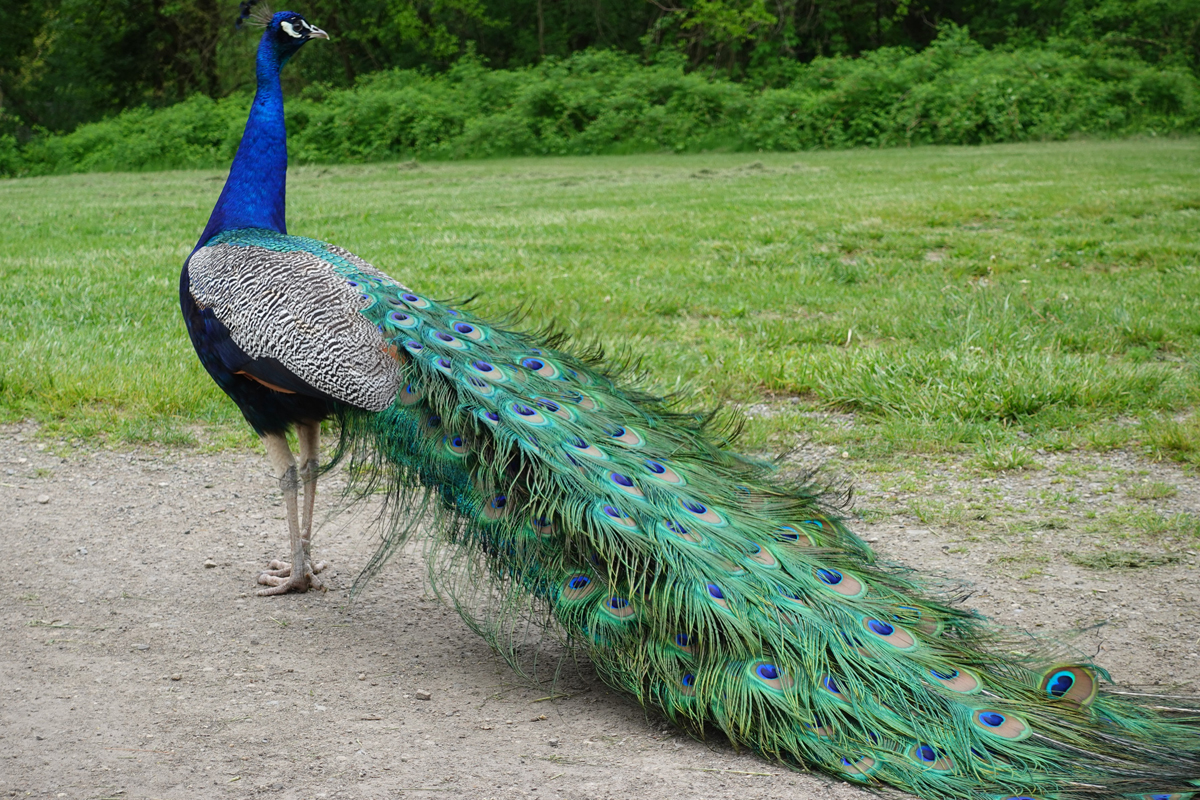The peacocks of Churchill Park have flown the coop for the last time as the City of Cambridge has announced that it has found the birds a new home.

Several peacocks had lived in the park for more than 25 years but they would often escape their pen and be found in other areas of the city.
In fact, one still remains on the loose, with Cambridge noting that it receives occasional calls from people saying it had popped up in their backyard.
The other two peacocks moved to a 40-acre farm in Flamborough last year, where they live in the care of Lisa DiCesare and her husband Brian Hansell.
“We named them Winston and Churchill and they’ve settled in nicely,” DiCesare said. “In fact, Churchill is going to be a dad; we are expecting to see some chicks hatch around July 20.”
The city says the peacocks have joined a number of other rescue animals at the farm including three lambs, a donkey, a pony, a horse and other fowl.
“Ethically, I think people know that where they were was not the best environment,” said Michael Hausser, the city’s direction of operations. “People were feeding them, chasing them, and they were at risk of getting injured from a pet or by eating something they shouldn’t.”
He said moving the birds to other confines marks a new chapter for Cambridge.
“Like many municipalities, we have been working to end the practice of keeping wildlife for public display,” Hausser said. “Moving the peacocks out of the park is significant, not only because it is best for their welfare, but it also marks the end of the City’s history of keeping animals penned up in parks.”
As for the single peacock who is running wild on the streets of Cambridge, the city says it can survive in the urban jungle on its own if need be but work is still being done to catch it so it can be rehomed as well.
“We are aware that it is still being spotted in the surrounding residential neighbourhood and continue to receive calls from residents,” Hausser said. “The good news is these birds are able to survive on their own outside captivity.”




Comments